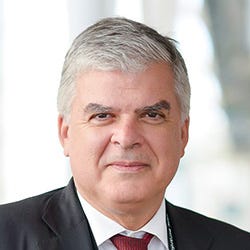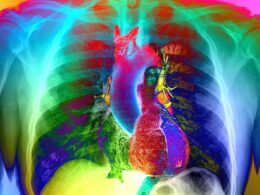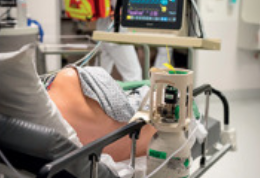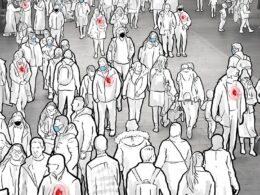Site editor:
Joaquim Cardoso MSc.
The Health Strategist — Journal
September 29, 2022
Health Awareness UK
Cardiovascular Health
Q3 2022
Fausto Pinto
President, World Heart Federation
With all we are learning, why do gaps in cardiovascular care persist?
A new vision, unique portal and indicative poll can open doors to cardiovascular health. Access to comprehensive care is the way forward.
Being part of the evolving landscape of cardiovascular care is as rewarding a career as it gets.
There is an increase in new treatments, rising recognition of prevention and hands-on help for patients.
Yet, we wonder what extra action, device, medication, policy or lifestyle change we must recommend to reduce the above 18 million deaths from cardiovascular disease (CVD).

Education on disease risks
In a recent survey across 25 countries, most respondents put cancer as the cause of mortality ahead of CVD, although CVD is the leading cause.
In a recent survey across 25 countries, most respondents put cancer as the cause of mortality ahead of CVD, although CVD is the leading cause
Only 3% of people identified overall education as a key to mitigating heart disease.
Few people ranked tobacco and alcohol as primary risk factors.
Although, every year, three million people die from heart disease attributable to tobacco use and exposure, and alcohol can increase disease risk.
… every year, three million people die from heart disease attributable to tobacco use and exposure, and alcohol can increase disease risk.
Changing the course of health history requires rallying the medical community, patient groups, industry partners and crafters of policies and frameworks that determine how and when citizens can best access care.
With this year’s creation of the World Heart Observatory, we have a hub where all disciplines can share globally sourced actionable data on cardiovascular conditions, risk factors, interventions and the impacts of policy on health care.
Healthcare delivery via digital means is expanding.

Making this decade count
Constantly evolving technology is generating change in every sphere. By 2030, internet users might well be nearing eight billion. Healthcare delivery via digital means is expanding.
We have a chance to reimagine and redefine cardiovascular care in four complementary ways:
- improving health systems that emphasise equity;
- increasing technical knowledge;
- Leveraging technology; and
- tackling climate change that impacts water, food and air quality essential to a healthy lifestyle.
We have a chance to reimagine and redefine cardiovascular care in four complementary ways:
(1) improving health systems that emphasise equity; (2) increasing technical knowledge; (3) leveraging technology; and (4) tackling climate change that impacts water, food and air quality essential to a healthy lifestyle.

Reaching more hearts
Pondering carefully often leads to the same conclusion: we are increasing our knowledge and expanding our vision yet sometimes miss an intangible tool — will and collaboration.
We must create medical devices, develop treatments and modify lifestyles.
But even more importantly, we must also revise health policies, systems and regulatory frameworks to support affordable and accessible care. Otherwise, we will likely miss the main target.
Achieving cardiovascular health for all takes commitment from every sector and many stakeholders, starting with the cardiovascular community.
The opportunity is here — now, let us seize it.
Achieving cardiovascular health for all takes commitment from every sector and many stakeholders, starting with the cardiovascular community.
The opportunity is here — now, let us seize it.
Originally published at https://www.healthawareness.co.uk on September 12,
Fausto Pinto
President, World Heart Federation

Related articles












